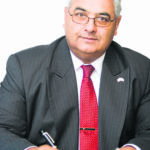Opinion
Trading kingdoms: TTIP investor challenges
This article is more than 10 years old.
TTIP Investor challenges
Investment is a vital part of the EU’s economy: it is an essential basis for creating and maintaining businesses and jobs in the wake of the financial crisis. TTIP will further promote investment between the US and EU that currently stands at over 2 trillion euros.
Occasionally, things can go wrong under a free trade agreement, and ISDS (Investor State Dispute Settlement) provides the mechanism for disputes to be solved. The ISDS clause in TTIP should do just that.
Assurance of fair treatment
In the EU, investments often come from abroad and the US plays a major role, accounting for 58 percent of foreign investment capital between 2011 and 2013. To maintain a steady inflow of capital and attract even more with TTIP, investors need assurances of fair treatment in the EU.
Furthermore, the level of protection foreign companies receive in the EU sets a precedent for how the EU’s companies will be treated when they invest in the US. EU countries’ combined investments in the US are approximately 1.6 trillion euros, making the EU the biggest investor in the US.
Investors are not only industrial or service companies; they are also pension funds looking for ways to live up to your retirement commitment or the investment arm of the local bank holding your deposits.
So the interest in ensuring that investments abroad receive the best possible protection extends beyond businesses to individuals.
Need for clarification
The outcome of the EU Public Consultation Report on Investment Protection/ISDS in TTIP highlights that the rules need to be further clarified to assist accurate understanding by the public and business stakeholders.
In Denmark, for example, the trade unions are concerned about the risk of lowering labour standards in favour of investment. Others call for increasing the level of transparency around the dispute settlement mechanism and preventing its abuse by companies. Some even feel there is no need for the ISDS mechanism in the treaty at all. They would argue that it should be scrapped and replaced by commercial political risk insurance.
 Mariano A Davies is the president & CEO of both the language learning provider Oxford Institute (oxfordinstitute.biz) and the British Chamber of Commerce in Denmark (bccd.dk). BCCD, the Danish arm of a global network of British chambers, provides networking and facilitation through events and other professional services for the business community in Denmark.
Mariano A Davies is the president & CEO of both the language learning provider Oxford Institute (oxfordinstitute.biz) and the British Chamber of Commerce in Denmark (bccd.dk). BCCD, the Danish arm of a global network of British chambers, provides networking and facilitation through events and other professional services for the business community in Denmark.
About










































